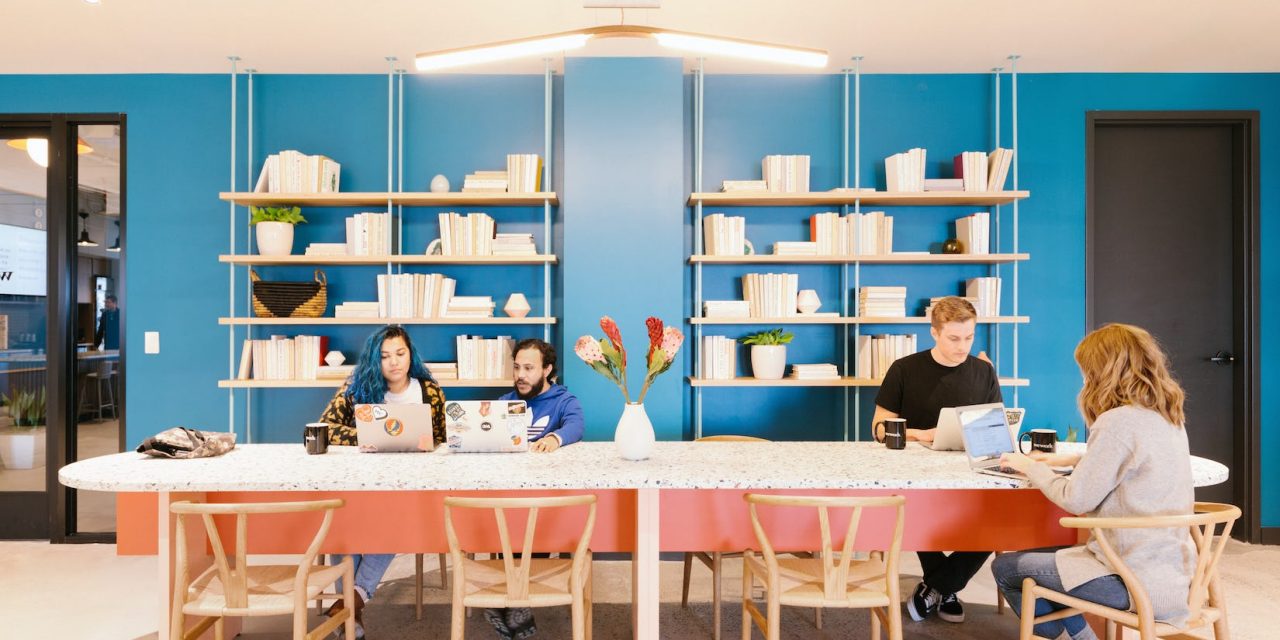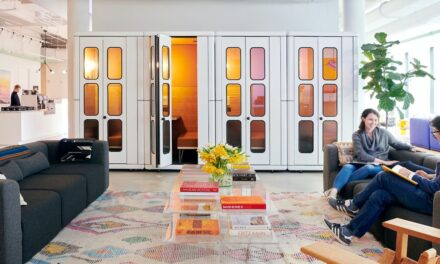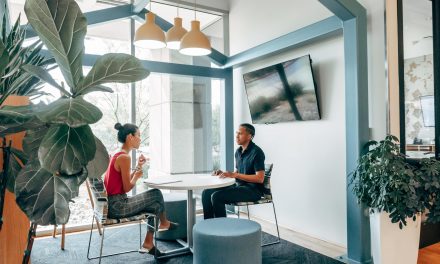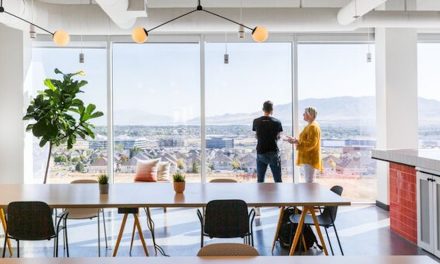Today, in more ways than we have experienced in recent history, the world is our oyster. Pre-2020, we were in a routine of going to the office every day, whether we liked it or not. Now we have much more freedom and choice, with companies embracing remote and hybrid working – not to mention the increasingly popular digital nomad route.
This has given rise to various new places of work, whether that’s a spare bedroom converted into a study, a cabin in your yard, or your local cafe. Coworking spaces have also enjoyed a boom of popularity in response to these changing working conditions and it’s easy to see why thanks to the flexibility they provide companies and workers alike.
However, while such a variety of options is now great, what happens when your company no longer operates from a permanent office but you have meetings to arrange, either internally or with clients? This is where coworking spaces can hold a strong advantage once more.
How to choose a coworking space for meetings
If you are already using a coworking space, there is a good chance it has the facilities available for you to arrange meetings. But your regular coworking space may not welcome meetings or people working in groups.
For example, the space may not so easily facilitate sizeable meetings, and perhaps not even be able to offer a meeting room large enough to comfortably and safely host everyone involved.
It’s important to not assume that just because it’s a coworking space you regularly attend they can accommodate your meeting at the drop of a hat. Make sure to book as early as your plans allow, the sooner you reserve the space the less you have to worry about finding a last-minute alternative.
Furthermore, your coworking space could offer a premium service that only allows meeting rooms to be booked by members, so it’s essential to check and verify this as soon as possible.
Coworking meeting etiquette
Meetings typically overrun, so it’s important to ensure that someone is watching the clock and helping everyone stick to the agenda. Overrunning is not an option when someone else has booked the space straight after your meeting in a traditional office environment, so keeping things punctual while coworking is the considerate thing to do.
Don’t forget that while you may make up the majority of the people in the coworking space during your meeting, it is a shared space and not everyone will want to hear or be disrupted by your meeting.
If you cannot book a private room then consider how you will keep the volume low and avoid taking up too much space. Even if you are just having a face-to-face meeting, it’s important to be considerate of others – for example, you may wish to warn anyone nearby that you are going to be talking a lot and offer them the opportunity to find somewhere out of earshot.
Don’t forget about comfort
It’s estimated there will be over 34,000 coworking spaces worldwide by the end of 2023, and as they continue to grow in popularity, the more solutions and services they will provide.
You may wish to consider what amenities are available to you from a particular coworking space. This could be something as basic as a coffee machine or, if it’s going to be a long day, you may need somewhere that can provide food without the need to leave the building.

Your website can help set coworking expectations
In a world of differences and creativity, there is no need to conform as a business to the regular model of having one office you call home. Depending on the size of your company, or if you work for yourself, where you are based can be more fluid.
You can use the fact you have adopted coworking spaces as a positive, sharing your brand ethos and story through your company’s website or digital communications. Your website can also become a celebration of your forward-thinking company principles, but you still may need to make reference to one or more locations where you are based.
For SEO benefits alone, it is useful to have at least one location to help people find your company when searching for local services. Research shows that 78% of consumers use the internet to find information about local businesses more than once a week.
Local landing pages are essential because there is a huge amount of search traffic that anchors on local intent, so if you don’t have a fixed abode this can be difficult. Using your coworking space as a base is a great way to give yourself a physical location and to begin driving local traffic towards your services.
What you need for your local landing page
If your company operations are spread out, or you are a one-man show and like to move around a lot, it can be worthwhile creating landing pages for each location. To create a local landing page there are a few essentials to make it easier for people to discover you.
The most important aspect is to create local content on the landing page. This is the information that will direct search engines to people who are searching for your services in connection with their location.
Personalization is important for building trust. Showcasing your communication channels highly on a landing page is great for easing concerns about your legitimacy but this becomes more complex when using coworking spaces as your meeting point or office.
Ensure that you display a current phone number and email address at a minimum and an office address helps to build trust. However, your head office address may be different to your coworking address, so what can you do?
To avoid writing a convoluted explanation, simply write the head office address and label it so. Just below you can then add a simple sentence to assert that you are also available locally.
The golden rule of landing pages
A landing page is more than a way for people to contact you. It’s your opportunity to showcase what services you offer while weaving in content that is specific to the area it has been created for. For example, if your company has a central location but you have people spread across states or countries, then consider creating a page for each.
By signposting the areas that you or your company operates in with local landing pages, you may find conversions increase as potential customers or clients have more faith in your lack of a fixed location.









